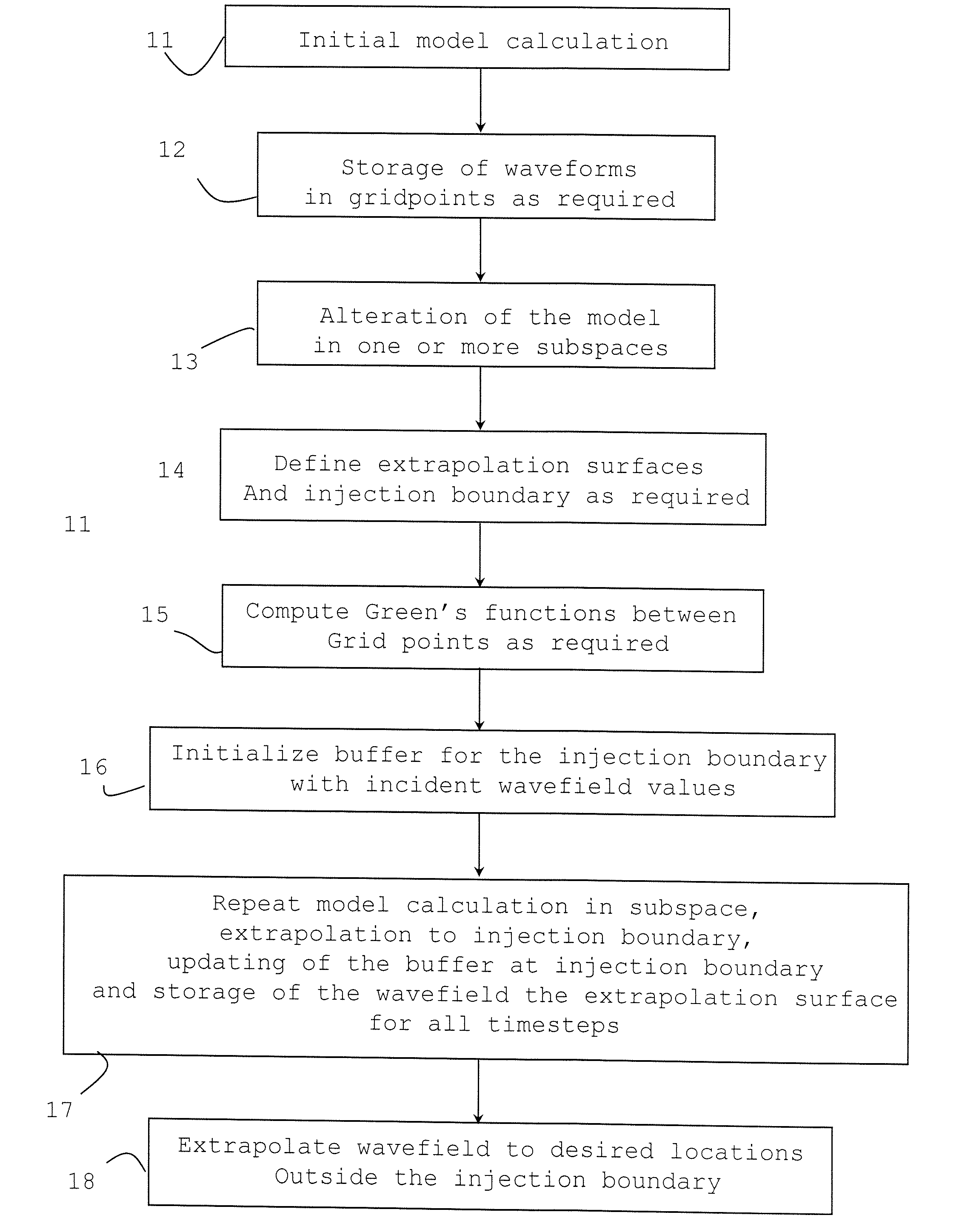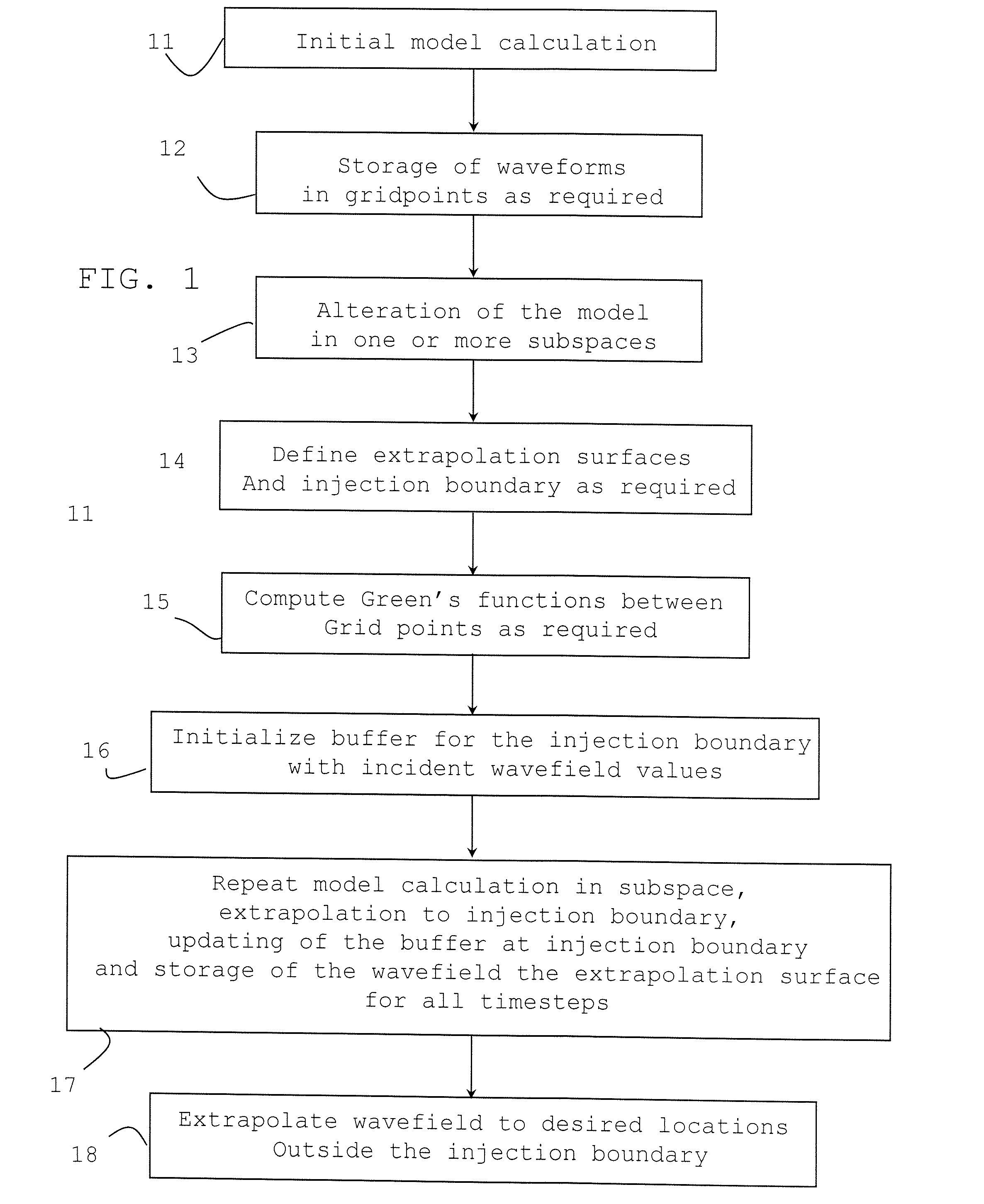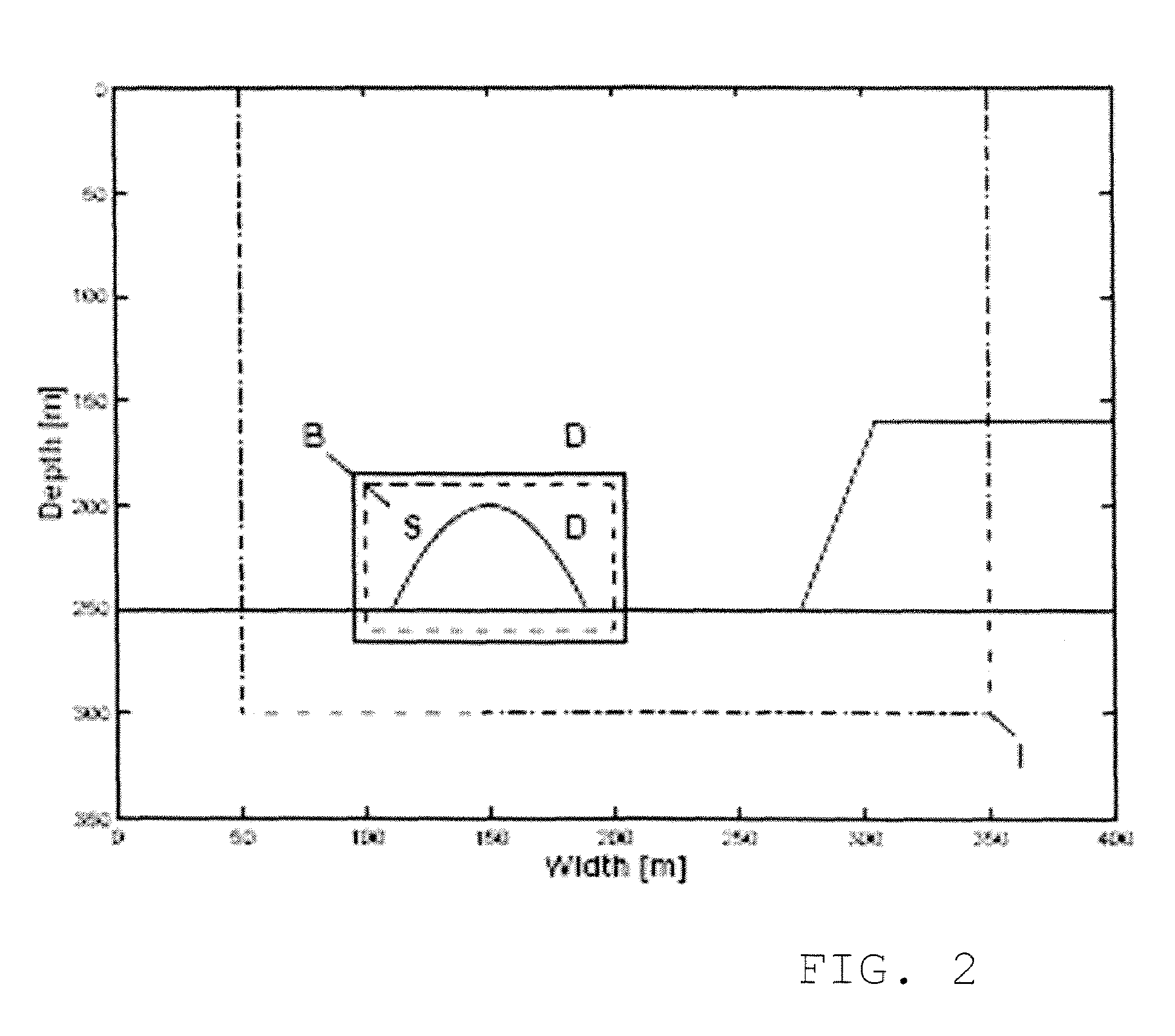Method of evaluating the interaction between a wavefield and a solid body
a solid body and wavefield technology, applied in the field of methods, can solve the problems of increasing the size of computational domain, prohibitively expensive finite-difference simulations to run on even state-of-the-art computing equipment, and rarely performing full finite-difference migration, and achieve the effect of computational efficiency
- Summary
- Abstract
- Description
- Claims
- Application Information
AI Technical Summary
Benefits of technology
Problems solved by technology
Method used
Image
Examples
Embodiment Construction
[0033]From general scattering theory, it is known that a representation for the scattered pressure at any point, xR, (x being a spatial vector) outside a surface Dsct surrounding the scatterer, can be derived from the values of the waveform on the surface using:
[0034]psct(xR,t)=∫0t∫¶Dsct[Gq(xR|x,τ-t)vksct(x,t)+Γkq(xR|x,τ-t)psct(x,t)]υkⅆAⅆt[1]
[0035]In eq. [1] the scattered wavefield {psct, vksct} is defined as the difference between the total wavefield {p, vk}, propagating in the perturbed model, and the incident wavefield {pinc, vkinc}, propagating in the background model and noting that both the incident and total wavefield are source free inside Dsct. The terms Gq(xR|x,τ−t) and Γkq(xR|x,τ−t) are the Green's function for pressure due to point sources of volume injection and body force, respectively, in the background medium.
[0036]Equation [1] can also be used to extrapolate the total wavefield because the incident wavefield is source free in the region of the pe...
PUM
 Login to View More
Login to View More Abstract
Description
Claims
Application Information
 Login to View More
Login to View More - R&D
- Intellectual Property
- Life Sciences
- Materials
- Tech Scout
- Unparalleled Data Quality
- Higher Quality Content
- 60% Fewer Hallucinations
Browse by: Latest US Patents, China's latest patents, Technical Efficacy Thesaurus, Application Domain, Technology Topic, Popular Technical Reports.
© 2025 PatSnap. All rights reserved.Legal|Privacy policy|Modern Slavery Act Transparency Statement|Sitemap|About US| Contact US: help@patsnap.com



